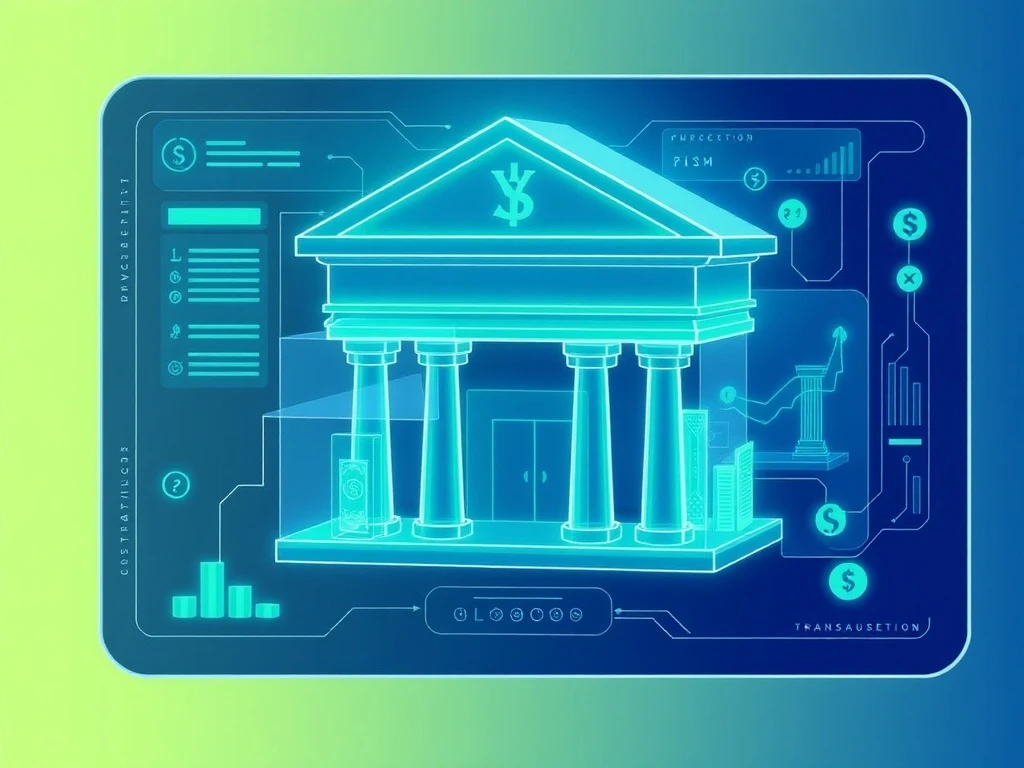Traditional banking faces its greatest challenge yet as deobanks emerge to rewrite the rules of financial trust and transaction speed. These decentralized platforms leverage cutting-edge blockchain technology to eliminate intermediaries while offering unprecedented efficiency and transparency.
What Are Deobanks and How Do They Work?
Deobanks represent a revolutionary approach to financial services. They operate on decentralized networks using blockchain technology instead of traditional banking infrastructure. Consequently, these platforms enable direct peer-to-peer transactions without central authorities. This fundamental shift creates several advantages including real-time settlements and reduced operational costs. Moreover, deobanks utilize smart contracts to automate financial processes securely.
Deobanks Versus Traditional Financial Institutions
Deobanks differ significantly from both traditional banks and fintech companies. Unlike conventional banks, they don’t maintain physical branches or centralized databases. Similarly, they differ from fintechs that typically rely on existing banking partnerships. Instead, deobanks build entirely independent financial ecosystems. Key differences include:
- No intermediaries – Transactions occur directly between parties
- Transparent operations – All transactions are recorded on public ledgers
- Lower fees – Elimination of middlemen reduces costs substantially
- Global accessibility – Services available anywhere with internet access
Technological Foundations Powering Deobanks
Blockchain technology forms the backbone of all deobank operations. This distributed ledger system ensures security and transparency for every transaction. Additionally, artificial intelligence enhances fraud detection and compliance processes. Open banking APIs facilitate seamless integration with other financial services. These technologies combine to create robust financial platforms that challenge traditional systems effectively.
Market Impact and Growth Projections
The deobank sector demonstrates remarkable growth potential in global markets. Industry analysts project significant expansion throughout 2025 and beyond. Cross-border payments represent a particularly strong growth area for these platforms. Similarly, decentralized lending services attract both retail and institutional users. Markets with inefficient traditional banking systems show especially strong adoption rates.
Regulatory Landscape and Future Challenges
Regulatory frameworks continue evolving to address deobank operations. Some jurisdictions establish regulatory sandboxes to encourage innovation. However, concerns about money laundering and systemic risks remain prevalent. Regulatory clarity will ultimately determine mainstream adoption levels. Meanwhile, consumer education remains crucial for widespread acceptance.
Frequently Asked Questions
What exactly distinguishes deobanks from traditional fintech companies?
Deobanks operate on completely decentralized networks without relying on traditional banking infrastructure, while fintechs typically partner with existing banks for compliance and operations.
Are deobank transactions secure and insured?
Transactions are secured through blockchain technology and cryptographic protocols, but insurance coverage varies by platform and may differ from traditional bank deposit insurance.
How do deobanks achieve faster transaction speeds?
They eliminate intermediary verification processes and utilize blockchain settlement mechanisms that operate 24/7 without traditional banking hours or processing delays.
What types of financial services do deobanks currently offer?
Most platforms provide cross-border payments, lending services, asset trading, and basic banking functions through decentralized applications.
How do regulators view deobank operations?
Regulatory approaches vary globally, with some jurisdictions embracing innovation while others exercise caution due to concerns about financial stability and consumer protection.
Can traditional banks incorporate deobank technology?
Yes, many traditional financial institutions are exploring blockchain integration and decentralized finance solutions to enhance their own services and remain competitive.


